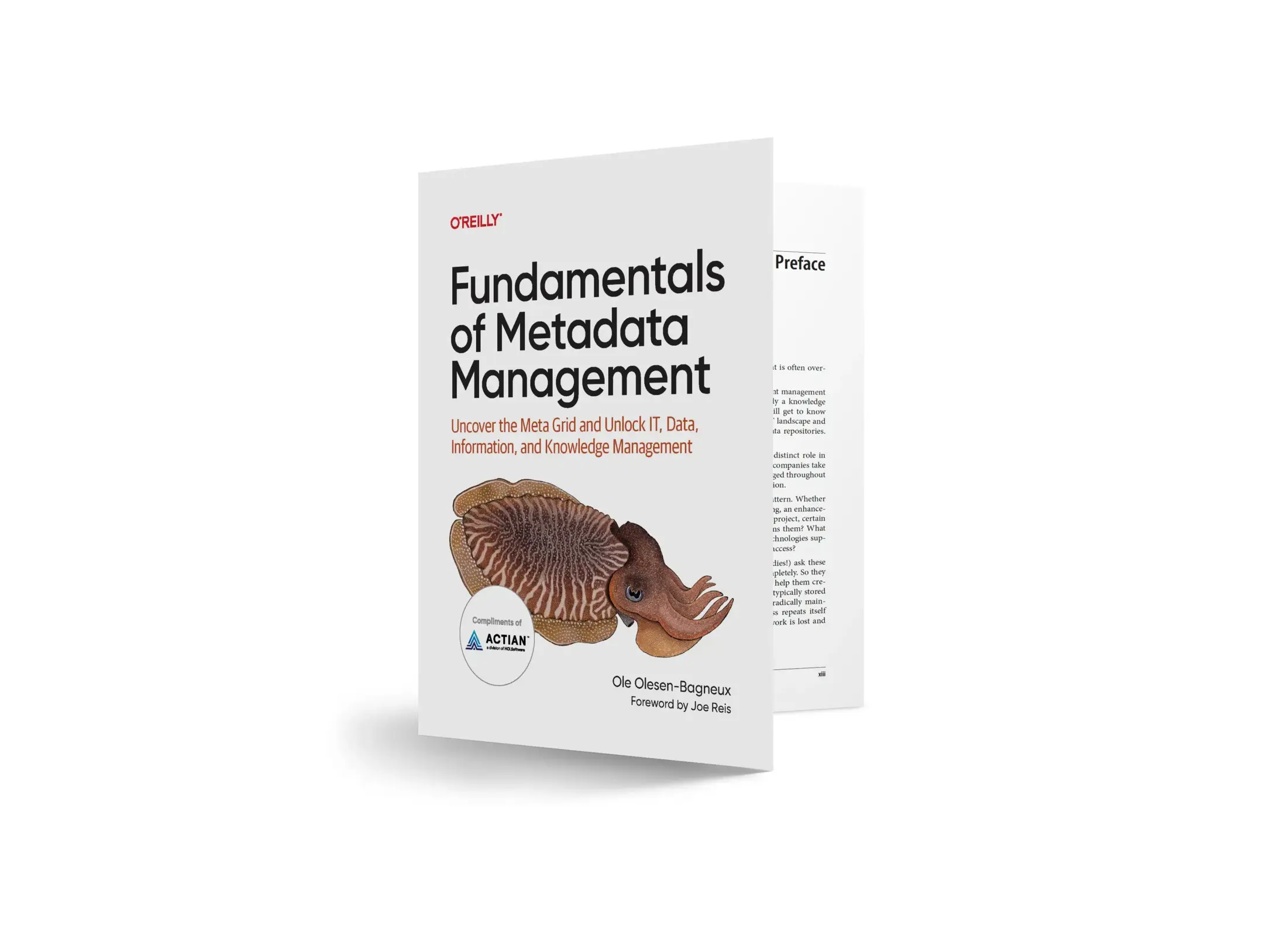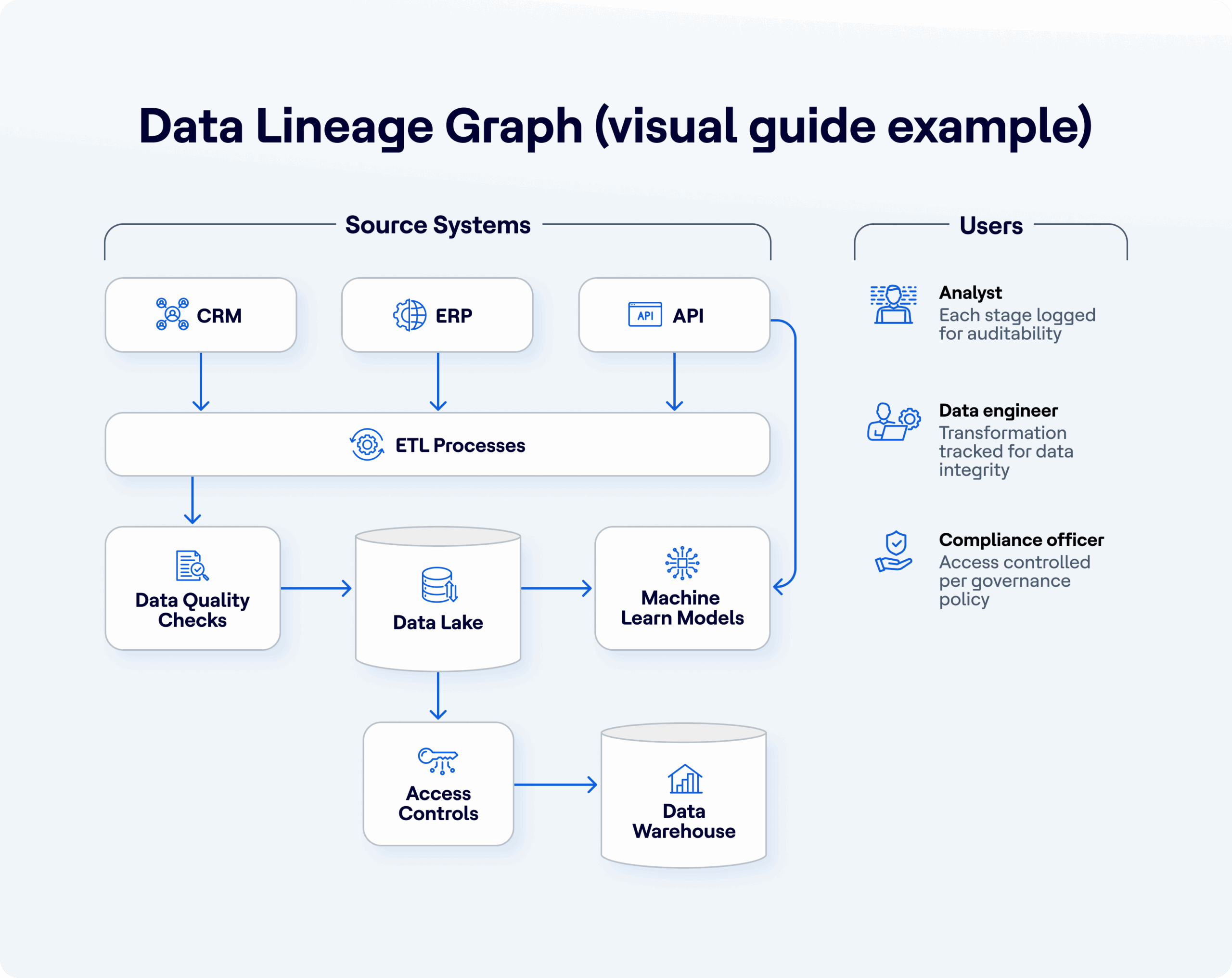How AI Strengthens Data Governance
Actian Corporation
October 23, 2023

According to a report published by McKinsey at the end of 2022, 50% of organizations will have already integrated the use of artificial intelligence to optimize service operations and create new products. The development of AI and machine learning in everyday business reflects the eminent role of data in management development strategies. To function effectively, AI depends on vast sets of data, which must be the subject of methodical and rigorous governance.
Behind the concept of data governance lies the set of processes, policies, and standards that govern the collection, storage, management, quality, and access to data within an organization. The role of data governance? To ensure that data is accurate, secure, accessible, and compliant with current regulations. The relationship between AI and data governance is a close one. AI models learn from data, and poor quality or biased data can lead to erroneous or discriminatory decisions.
Do you want to ensure that the data used by AI systems and their algorithms is reliable, ethical, and privacy-compliant? Then, data governance is an essential prerequisite. By moving forward on a dual project of AI and data governance, you create a virtuous loop. Indeed, AI can also be used to improve data governance by automating tasks such as anomaly detection or data classification.
Let’s take a look at the (many) benefits of AI-enhanced data governance.
What are the Benefits of AI-Powered Data Governance?
Improve the Quality of Your Data
Data quality must be a key fundamental of any data strategy. The more reliable the data, the more relevant the lessons, choices, and orientations that emerge from it, and AI contributes to improving data quality through a number of mechanisms. In fact, AI algorithms can automate the detection and correction of errors in datasets, thereby reducing inconsistencies and inaccuracies.
Moreover, AI can help standardize data by structuring it in a coherent way, making it easier and more reliable to use, compare, and put into perspective. With machine learning, it is also possible to identify trends and patterns hidden in the data, enabling the discovery of errors or missing data.
Automate Data Compliance
At a time when cyber threats are literally exploding, data compliance must be a priority in your organization. But guaranteeing compliance requires constant vigilance, which can’t depend exclusively on human intelligence. Especially as AI can proactively monitor potential violations of data regulations by performing real-time analysis of all data flows – detecting any anomalies or unauthorized access, triggering automatic alerts, and even making recommendations to correct any problems. In addition, AI facilitates the classification and labeling of sensitive data, ensuring that it is handled appropriately. Finally, AI systems can also generate automatic compliance reports, reducing the administrative workload.
Strengthen Data Security
Through its ability to proactively detect threats by analyzing data access patterns in real time, AI can alert about suspicious behavior, such as attempted intrusions or unauthorized access. To take data governance even further, AI leverages machine-learning-based malware detection systems. These systems can identify known malware signatures and detect unknown variants by analyzing behavior. Finally, it contributes to security by automating the management of security patches and monitoring compliance with security policies.
Democratize Data
At the heart of your data strategy lies one objective: to encourage your employees to use data whenever possible. In this way, you will foster the development of a data culture within your organization. The key to achieving this is to facilitate access to data by simplifying the search and analysis of complex data. AI search engines can quickly extract relevant information from large datasets, enabling employees to quickly find what they need. In addition, AI can automate the aggregation and presentation of data in the form of interactive dashboards, making information ever more accessible and easy to share!
What Does the Future Hold for Data Governance?
Increasing amounts of data, increasing levels of analysis, increasing levels of predictability. This is where history is heading. In so doing, companies will adopt more holistic approaches to their challenges: gain in perspective, distance, and proximity to their markets. To meet this challenge, it is vital to integrate data governance into the overall business strategy. In this regard, automation will be essential, relying heavily on artificial intelligence and machine learning tools to proactively detect, classify, and secure data.
The future will be shaped by greater collaboration between the IT, legal, and business teams, which will be key to ensuring the success of data governance and maintaining the trust of all stakeholders.
Subscribe to the Actian Blog
Subscribe to Actian’s blog to get data insights delivered right to you.
- Stay in the know – Get the latest in data analytics pushed directly to your inbox.
- Never miss a post – You’ll receive automatic email updates to let you know when new posts are live.
- It’s all up to you – Change your delivery preferences to suit your needs.
Subscribe
(i.e. sales@..., support@...)






